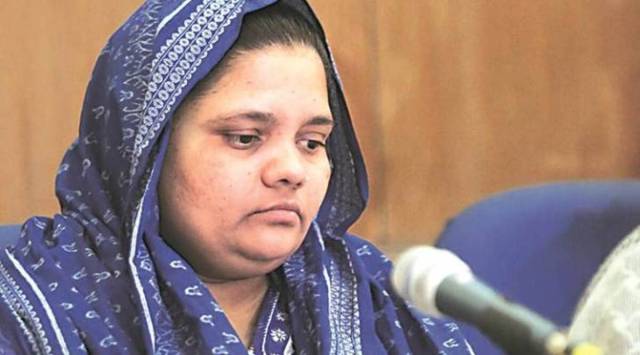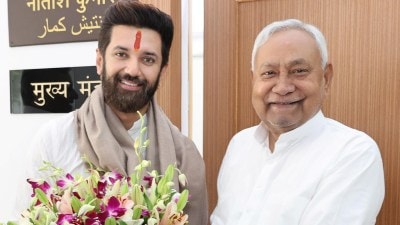Accused has constitutional right to be reintegrated into society: SC on remission for Bilkis Bano case convicts
Justice B V Nagarathna, presiding over a two-judge bench, made the remarks as a counsel appearing for one of the public interest litigation (PIL) petitioners contended that there can be no fundamental right to remission.
 Bilkis Bano was gangraped and her three-year-old daughter was among 14 people killed by a mob on March 3, 2002, in Limkheda taluka of Gujarat's Dahod district during riots. Bilkis was pregnant at the time. All 11 convicts in the case were granted remission by Gujarat government and released on August 15, 2022.
Bilkis Bano was gangraped and her three-year-old daughter was among 14 people killed by a mob on March 3, 2002, in Limkheda taluka of Gujarat's Dahod district during riots. Bilkis was pregnant at the time. All 11 convicts in the case were granted remission by Gujarat government and released on August 15, 2022.Every accused has a constitutional right to be reintegrated into society, the Supreme Court said on Thursday while hearing petitions challenging the remission granted to Bilkis Bano case convicts.
Justice B V Nagarathna, presiding over a two-judge bench, made the remarks as a counsel appearing for one of the public interest litigation (PIL) petitioners contended that there can be no fundamental right to remission.
“The reintegration of an accused in society is a constitutional right. Remission may not be a fundamental right, but it is a constitutional right because it is recognised under articles 161 (power of Governor to grant pardon, remission etc), and 72 (power of President to grant pardon, remission etc) of the Constitution, besides being a statutory right,” Justice Nagarathna said.
Appearing for the National Federation of Indian Women, advocate Nizam Pasha contended that an accused has a fundamental right to fair trial till the criminal proceedings attain finality. Once it is final, there can be no fundamental right to remission but only a statutory right to apply and be considered in accordance with law, he added.
Senior advocate Indira Jaising, appearing for Trinamool Congress MP Mahua Moitra, told the bench – also comprising Justice Ujjal Bhuyan – that “what happened to Bilkis Bano was a crime against humanity because it happened in a situation of widespread communal violence targeting the members of one community”. She added that what happened to Bano cannot be viewed separately from the communal and sectarian conflict that broke out in Gujarat in 2002.
Jaising said that it was also a part of targeted persecution of an identifiable group based on religion and gender, which are universally recognised as crimes against humanity and prohibited and punished under international law.
The convicts in the case had questioned the locus standi of the PIL petitioners like Moitra and CPI(M) leader Subhashini Ali in the matter. They have said that allowing third parties to question remission orders will set a dangerous precedent.
Opposing this, Jaising told the bench that the petitioners were not uninterested parties but were “vitally interested to prevent – in public interest and for public good – a public authority from acting capricious”.
The senior counsel said that the state ought to have taken into consideration the context in which the crimes were committed, their nature, motive and vulnerability of the victim in the communal context of what happened.
Jaising also pointed out that the trial court judge in Mumbai had declined to give his consent to remission being granted after noting that it was a crime against humanity.
The judge had said that the offence was a targeted one, based on religion, whose nature was horrendous; and motive was vicious since there was no enmity between the convicts and the victims. “The opinion of the trial court judge is not merely a relevant factor but a decisive factor,” Jaising said.
Advocate Vrinda Grover said the PILs filed in the matter “represent the concerns of not only of these victims, but also the society since they are actually crimes against humanity… crimes against society”.
She added that Bilkis Bano had admitted in a public statement that she got the courage to approach the SC after seeing the action of the PIL petitioners and their willingness to “take on hurdles” on her behalf.
Bano was gangraped and her three-year-old daughter was among 14 people killed by a mob on March 3, 2002, in Limkheda taluka of Gujarat’s Dahod district during riots. Bilkis was pregnant at the time. All 11 convicts in the case were granted remission by Gujarat government and released on August 15, 2022.







